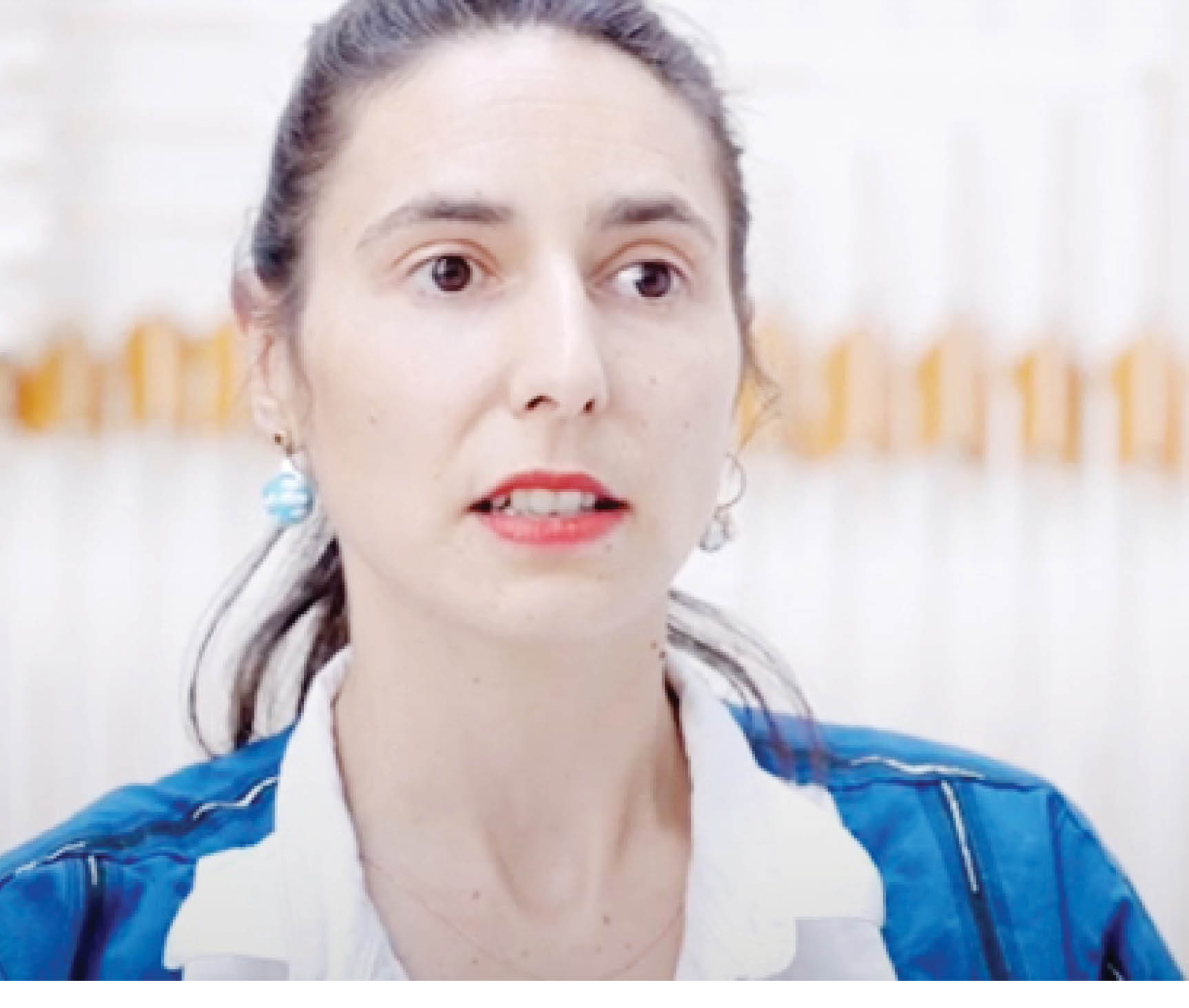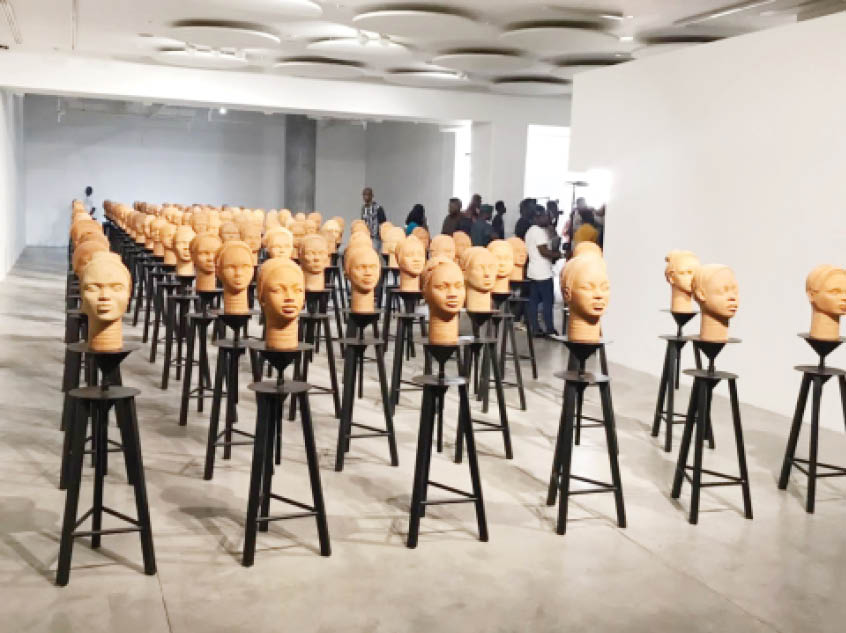The kidnapping of school girls in Chibok community of Borno State in the Northeastern part of Nigeria in 2014 remains one of the saddest episodes in the battle against insurgency in the country. While the majority of the 276 kidnapped girls were either released or escaped, some of the school girls are yet to be found even as some of them were said to have been married off to terrorists’ commanders while in captivity. Prune Nourry, a French multidisciplinary artist, immortalises the girls with her works recently unveiled in Lagos.
Amidst global call for the release of the remaining school girls, the damage caused by the kidnap incident – the destruction to education, especially the girl-child education, and the lifetime trauma caused to the parents of the kidnapped children, some of whom died waiting endlessly for the release of their children and the psychological trauma being nursed even by those girls already released, is long-lasting.
These are issues enunciated in the works of a French sculptor Prune Nourry and the Department of Fine & Applied Arts of the Obafemi Awolowo University which recently unveiled the project in collaboration with the families of the Chibok girls.
The project, inspired by the ancient Ife terracotta heads, was unveiled at Art Twenty One in Lagos, Nigeria, and is billed to be showcased in other African countries, as well as Europe and America.
Smart phones, other devices, pushing us out of business – Clocksmiths
Students have abandoned libraries – NLA president
Titled ‘Statues also breathe’, the collaboration aims to raise awareness about the plight of the girls who are still missing while highlighting the global struggle for girls’ education.
After meeting with the Chibok families to conceive the project, Nourry was entrusted with portraits of their missing daughters, which she used as inspiration for eight heads sculpted in clay – creating portraits of the high school girls imaged in the style of iconic ancestral Ife Head of the region.

From these eight original sculptures, 108 heads were cast in clay sourced from Ile-Ife, by potters from a female potter’s community in the ancient city of Ilorin and students of Obafemi-Awolowo University.
A one-day workshop was held at the university where 108 students sculpted and transformed each head into unique sculptures using portraits of the missing girls.
A delegation of mothers of the missing Chibok girls and escapees were also in attendance, honouring and remembering their friends and loved ones depicted by the sculptures.
One of the parents of the missing girls identified as Rachel Daniel, said she is still in pain as Boko Haram has killed her husband and torched their home while her daughter is yet to return from captivity.
“Our pain is still there; we cannot really estimate the extent of trauma we are facing with the kidnap incident. I lost my husband while waiting and hoping for the release of our daughter and again our house was burnt down by the terrorists. This project is a laudable one which shows that the world has not forgotten us,” she said.
According to Prune Nourry; the “army of girls” is indivisible and must remain together as a complete art work and would be taken around the World to remind of the rich and diverse history and culture of Nigeria, and the present-day challenges that must be addressed collectively as a global community.
“Upon completion of the tour, they will return to the permanent collection of a museum in Africa which I am yet to figure out,” she said.
Nourry says the Chibok girls’ kidnap is a phenomenon that must not be forgotten and praised the collaboration of those who made the project a reality.
“Without you, it would have been impossible. I like the way it brings together people from different backgrounds, bearing different stories. We are working and manage to collaborate. We should remember Chibok girls and tell the stories at all times to keep the global community informed of the plights of the kidnapped girls.”
The artist further disclosed that a documentary movie will be exhibited with the sculptures in the ‘Statues Also Breathe’ show, as it enables all the collaborators to include their own voices and unique perspectives, be they teachers, students, or parents of the missing girls, adding, “everyone is a participant in the creative process. The foundation of the project is built on conversations with mothers of the eight models and their desire to ensure the world does not forget the girls. Each element of ‘Statues Also Breathe’ works towards bringing continued attention from the wider world.”
Also in progress is a podcast that will provide listeners with an intimate look at the events that took place before, during, and after the kidnapping, as recounted by the women who experienced it firsthand and the people who contributed to making their involvement in ‘Statues also breathe’ possible.
One of the escapees, Aminat, aged 25, said the happiest moment of her life was when she escaped from Boko haram captivity. She also appealed to the government to assist in bringing back other girls in captivity.
“It is not only Chibok girls that should be brought back, but also other victims of abduction,” she said.
An artistry lecturer, Mr Michael Fajuyigbe, said the project goes beyond display of artistic skills but much more about galvanizing “social transformation and constructing an identity for both self and the other.”
“So, what this has done for us is that she (the artist) has opened our eyes to see beyond the ordinary,” he said, adding that history has been recorded through the arts.

 Join Daily Trust WhatsApp Community For Quick Access To News and Happenings Around You.
Join Daily Trust WhatsApp Community For Quick Access To News and Happenings Around You.


